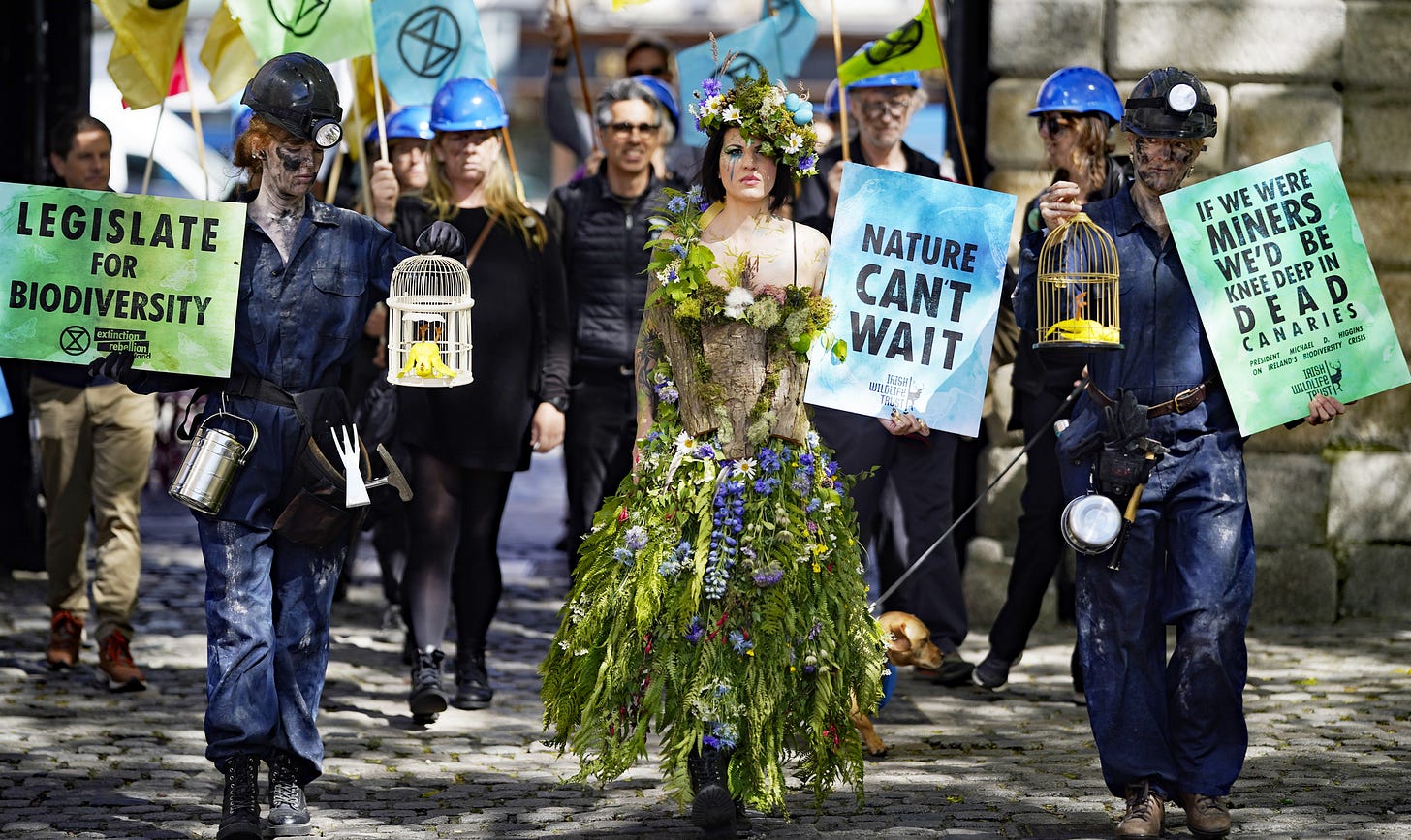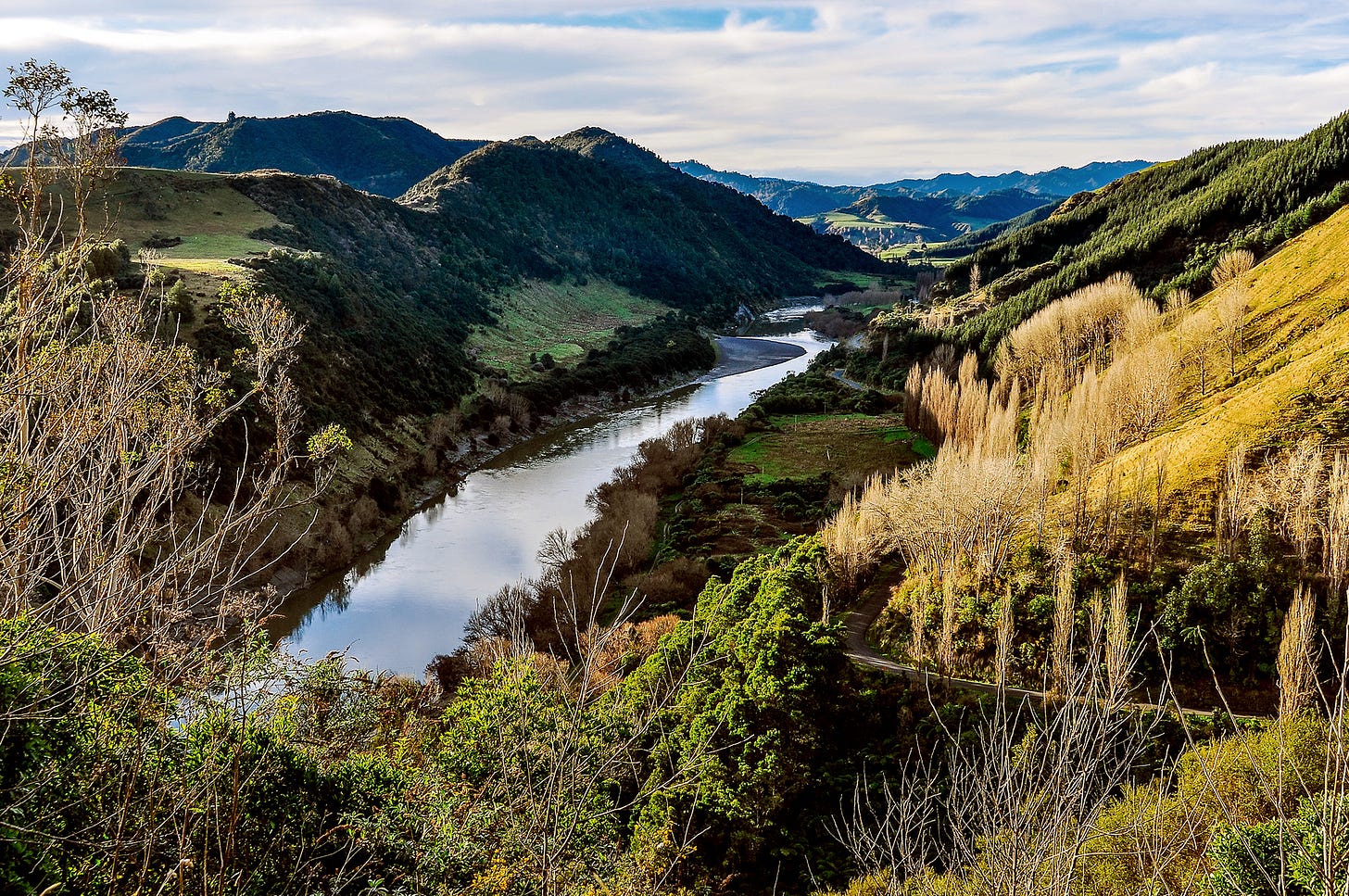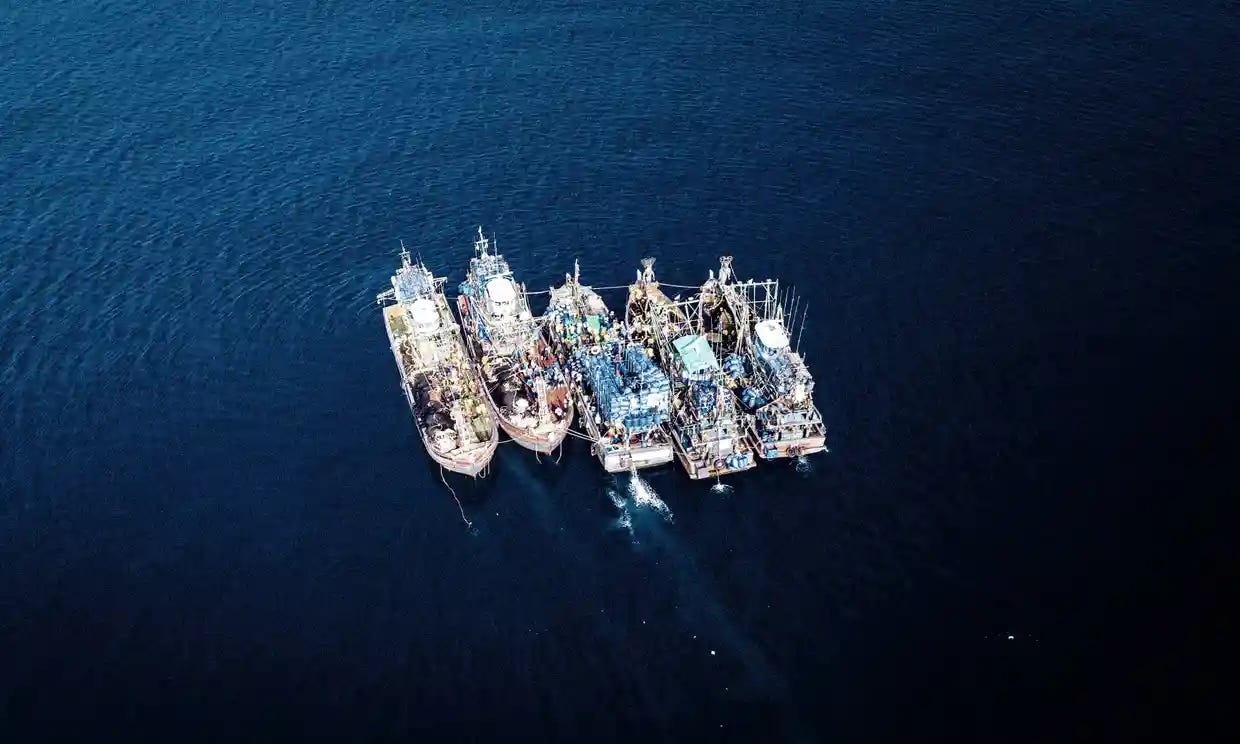News from a Changing Planet -- This Week on Earth #29
Recognizing the rights of nature, illegal fishing much more widespread than previously thought, steps forward and back for offshore wind, and getting to net-zero.
Hello! Happy New Year! Apologies for the lack of article this week — I was laid low by a stomach flu. Hope to get back to it next week or the one after! Feel free to help me out with any ideas of what to write about ;)

CERTAIN UNALIENABLE RIGHTS: Ireland considers recognizing nature’s rights in its constitution, a first for Europe. (Inside Climate News)
The Emerald Isle, having recognized a national biodiversity emergency with environmental degradation widespread throughout the country, is considering constitutional amendments that would recognize “that nature has inherent rights to exist, perpetuate and be restored, and that humans have a right to a clean environment and stable climate.”
“Rights of nature laws generally do not ban humans’ use of ecosystems or ban activities like hunting and fishing. Rather, the laws aim to protect the integrity of habitats so that they can persist into the future and maintain their natural cycles. The laws also do not abolish other rights, like humans’ right to private property, although, as with all other rights, there are inevitably clashes between competing interests.”
Around the world, several countries and local governments have laws respecting the rights of ecosystems or nature in general, but the move in Ireland would be the first such constitutional recognition in Europe.
The idea of natural personhood/rights of nature emerged as a legal concept that emerged in the 1970s, drawing on Indigenous ideas about nature’s sovereignty as a way to protect the natural world from human damage and encroachment.

“At least six countries—Ecuador, Bolivia, Panama, Uganda, New Zealand and Spain—have some form of national law recognizing the rights of nature or legal personhood for ecosystems. Many more nations have some form of court recognition or local laws recognizing nature’s rights. Those rules generally provide a higher level of legal protection to ecosystems or individual species, compared to conventional environmental protection laws.”
In the United States, the rights of individual species like orcas or salmon have been asserted in court or by other means, though no laws have been passed. In Milwaukee County, Wisconsin, the local government recognized the rights of nature this past October, “noting that it was following the lead of the Menominee Tribe of Wisconsin, which had previously recognized the inherent rights of the Menominee River to flourish and naturally exist.”
A few states recognize a human right to a clean and healthy environment. It was because of the provision in Montana’s constitution that a group of youth plaintiffs was able to successfully sue the state earlier this year.

THREE-QUARTERS OF INDUSTRIAL FISHING NOT TRACKED: Scientists map illegal fishing in the oceans for the first time. (The Guardian)
Keep reading with a 7-day free trial
Subscribe to News from a Changing Planet to keep reading this post and get 7 days of free access to the full post archives.



